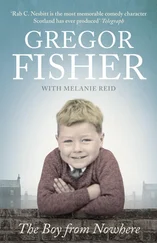Dash turned back to the television. “I don’t mean to be rude, but do you mind moving to another room for a while? I’d really like to be alone for a bit.”
Wilde rose and started for the door. He was just in the corridor when his cell phone rang.
The caller ID read NAOMI PINE.
He put the phone to his ear. “Hello?”
“Hey, Wilde.”
His pulse picked up a step. “Naomi?”
“Stop looking for us, okay?”
“Naomi, where are you?”
“We’re fine. We’re safe.”
“Crash is with you?”
“I have to go.”
“Wait—”
“Please. You’ll ruin everything. We don’t want to be found.”
“You already tried this, Naomi.”
“What?”
“When you did the Challenge,” Wilde said. “Do you remember what you said to me?”
“In the basement, you mean?”
“Yes.”
“I said I wanted to make a change.”
“You said more than that.”
“I said I wanted to make a total change. I wanted to do something so big it would erase my past and I could start again.”
“Is that what you’re doing now?”
“You’re going to say I failed then, so I’ll fail now.”
“No, Naomi, I’m not. I believe in you.”
“Wilde?”
“I’m here.”
“Please. If you want to help me, you’ll let me be.”
Rusty Eggers sat in the back of the car with Gavin. He kept straightening and bending his bad leg. Gavin watched him reach into his pocket, pull out a small tin box, and open it. Rusty plucked out two pills, threw them back in his mouth, swallowed. His glassy eyes turned to Gavin.
“Tylenol,” Rusty said.
Gavin didn’t reply.
Rusty picked up his phone, dialed a number, and said, “Hi, it’s me. Don’t explain. I’m coming up to your place. I hear there’s security. Just meet me out... yes, exactly. Thanks.”
Gavin Chambers asked, “Are you going to tell me what that’s about?”
“Do you remember when we discussed the horseshoe theory of politics?”
“Yes, of course.”
“We talked about how most Americans used to be in the middle, relatively speaking. That’s how America kept its balance all those years. The left and the right were close enough to have disagreements but not hate.”
“Okay.”
“That world is gone, Gavin, and so it will now be easy to destroy the social order. The middle has become complacent. They are smart, but they are lazy. They see the grays. They get the other side. Extremists, on the other hand, see only black and white. They are not only certain that their vision is absolutely correct, but they are incapable of even understanding the other side. Those who don’t believe as they do are lesser in every way, and so they will kill for that vision. I get those people, Gavin. And I want to create more of them by forcing those in the middle to choose a side. I want to make them extremists too.”
“Why?”
“Extremists are relentless. They don’t see right or wrong — they see us and them. You’re a baseball fan, aren’t you, Gavin?”
“I am.”
“A Yankee fan, right?”
“So?”
“So if you found out the Yankee manager cheated or that all your favorite Yankees took steroids, would you then become a Red Sox fan?”
Gavin said nothing.
“Well?”
“Probably not.”
“Exactly. The Yankees could never do anything that would make you a Red Sox fan. That’s the power I want to harness. I read a quote recently from Werner Herzog. You know who he is?”
“The German film director.”
“Right. He said that America was waking up, as Germany once did, to the awareness that one-third of our people will kill one-third of our people while one-third of our people watches.” Rusty put his hand on Gavin’s shoulder. “You and I are going to change the world, my friend.” He leaned forward. “Drop me off up ahead on the next corner.”
“I thought we were going to the Maynards’.”
“Change of plans.”
“I’m not following.”
They pulled to the corner. There was a woman by a bus stop. She had her head down.
“There’s a diner three miles down the road on Route 17.”
“I know it.”
“Wait for me there. I shouldn’t be too long.”
They drove off. As they did, Gavin tried to make out the identity of the woman. He couldn’t be sure — would never swear to it — but he thought that it looked very much like Delia Maynard.
When Hester woke up the next morning, it took her a minute or two to realize where she was. Her head pounded. Her throat was dry. The sliver of morning light sneaking into the bedroom hurt her eyes. In the distance, coming from downstairs, she heard voices.
She tried to piece it together. It didn’t take long. After leaving Tony’s Pizza and Sub, she’d come to her old home. No one was here yet. Matthew was out with some friends. Laila, well, from what she surmised, Laila was out on a date, which explained Wilde’s remark earlier about him not sleeping over. Left alone, in the house that once held her own family — Ira, Jeff, Eric, David, all her boys, that was what she always called them, her boys, her beautiful, wonderful boys — Hester knew that the only way to quiet the roused ghosts was through some sort of chemical intercession. She found a bottle of Writers’ Tears whiskey in the liquor cabinet and poured some over ice. That was a start, a good start, mellowing the ghosts, letting them sit beside her and hold her hand, but not ridding her of them, so she fumbled into her purse and found the pills. Hester rarely took them, only when she felt a strong need, and if tonight wasn’t the dictionary definition of “strong need,” then she wasn’t sure anything would ever be. Even as she dropped them into her mouth, Hester realized that this wasn’t a smart play on her part, that you never mix booze and medication, that she should be conscious and sharp in case either her family or Wilde needed her.
Most nights that would stop her, but again tonight was not most nights.
She squinted and reached for her phone. How, she wondered, had she made it into the bedroom? She didn’t remember. Had Laila come home and found her former mother-in-law passed out on the couch? Had Matthew? She didn’t think so. She conjured up a vague recollection of being cognizant of her state and preparing for bed before the inevitable overcame her. But she couldn’t be sure.
Hester could still hear voices floating up from downstairs. For a moment she worried that perhaps Laila forgot that she was staying over, that Hester was actually listening to Laila make breakfast for whatever male may have stayed the night. She held her breath and strained to hear.
Two voices. Both female. One was Laila’s, the other...?
Hester’s phone was down to four percent charge. The clock on the screen read 6:11 a.m. She could see the notifications from Oren. He’d called several times. There was one voicemail. It was from Oren too. She hit play.
“Hey, it’s me. I’m... I’m so sorry. I can’t believe how insensitive I was. I got the call, and I just rushed out, not thinking, but that’s no excuse. I’m really sorry. Just so you know, the accident was nothing major, no serious injuries. I don’t know if that matters or not. Call me, okay? Let me know you’re all right?”
But she wasn’t all right.
Hester could hear the worry in his voice. Oren was such a good man, but it was like in one of those movies where a witch cast a curse on you. Oren had been there the night David had died. He’d been called to an accident scene that night too, and there was no way she could shake that and be normal about it. Not now. Not ever. The curse doomed any chance, remote as it probably had been anyway, for them to be happy.
Читать дальше












